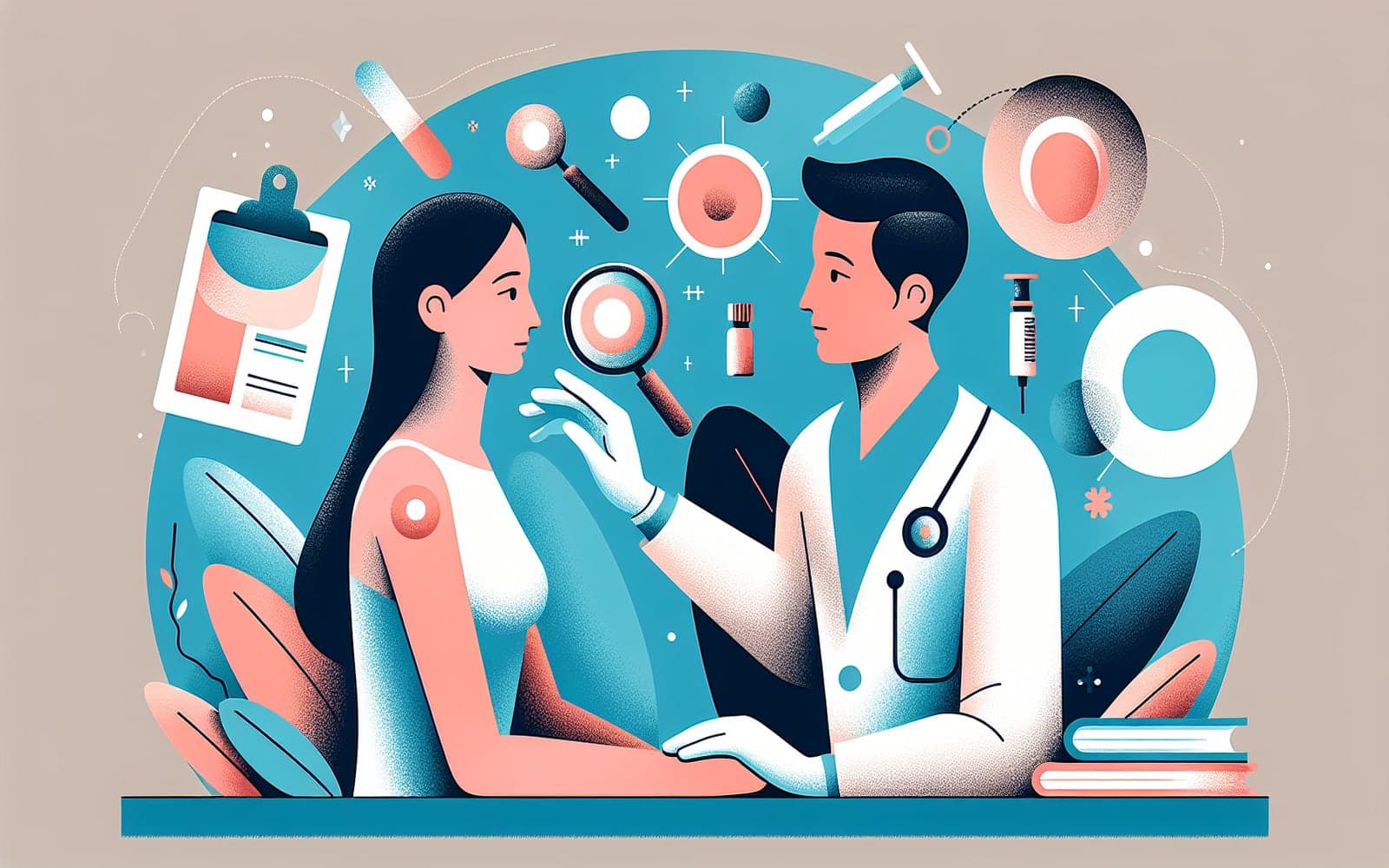The Art of the Skin Exam: How Doctors Decode Your Skin
Published: Nov 09, 2023

Medically reviewed by Jerome Albert Ecker | MD, Assistant Professor of Medicine, Duke University - Durham, NC on November 9th, 2023.
A thorough skin examination is a crucial medical skill. It involves more than just looking at your skin - doctors use specific techniques to gather important health information.
Contents
The Visual Inspection
Doctors start by carefully looking at your skin in good lighting. They may use a magnifying lens to get a closer look. They're searching for any unusual spots, changes in color, or patterns in how skin problems are distributed across your body. This visual inspection can reveal a lot about potential skin conditions or even internal health issues.
The Power of Touch
Feeling your skin is just as important as looking at it. Doctors use their hands to assess skin texture, temperature, and firmness. They may apply gentle pressure to check for swelling or to see if a rash blanches (turns white) when pressed. These tactile clues help distinguish between different skin conditions.

Special Tools of the Trade
Sometimes, doctors use additional tools for a more detailed exam. A Wood's lamp (special UV light) can make certain skin conditions more visible. Dermoscopy uses a handheld device to magnify and illuminate skin structures below the surface, which is especially helpful for examining moles and other growths.
Frequently Asked Questions
A full-body exam is ideal, but your comfort is important.
Usually 10-20 minutes, depending on findings.
Sometimes, to track changes in specific spots over time.
Key Takeaways
Understanding the skin exam process helps you be an active participant in your health care.
Curious about what a skin exam might reveal? Chat with Doctronic to learn more about skin health assessments.Related Articles
References
Cox NH. Palpation of the skin--an important issue. J R Soc Med 2006; 99:598.
Argenziano G, et al. Dermoscopy improves accuracy of primary care physicians to triage lesions suggestive of skin cancer. J Clin Oncol 2006; 24:1877.
This article has been reviewed for accuracy by one of the licensed medical doctors working for Doctronic. Always discuss health information with your healthcare provider.

